Reflecting back on our two-week experience in Nicaragua, I try to keep in mind that not only is Nicaragua one of the poorest countries in Latin America, but its size is comparable to the state of Pennsylvania. There is a large health disparity between citizens of upper and lower economic status. A handful of families make up the wealthy upper class, while the rest of the country lives just above or below the poverty line. This uneven distribution of wealth became apparent to me during our windshield survey of Managua all the way down to Granada and San Juan del Sur on the border with Costa Rica.
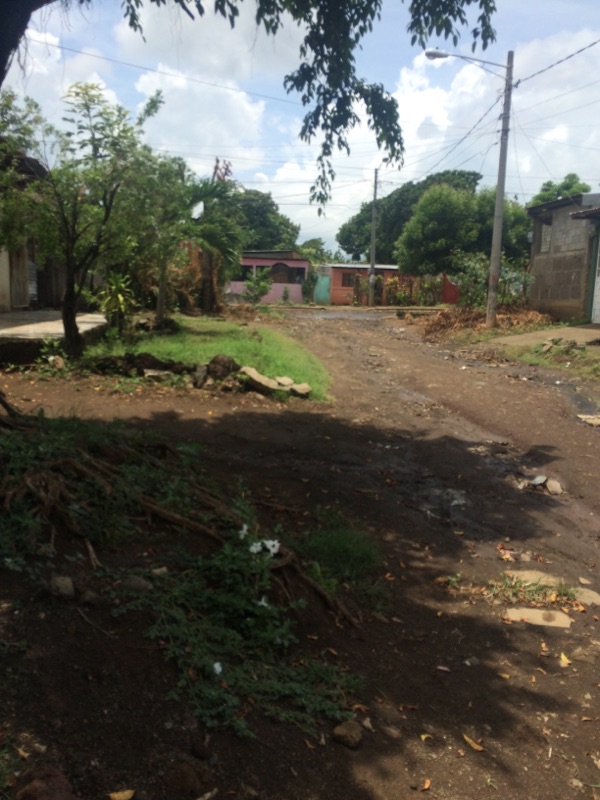
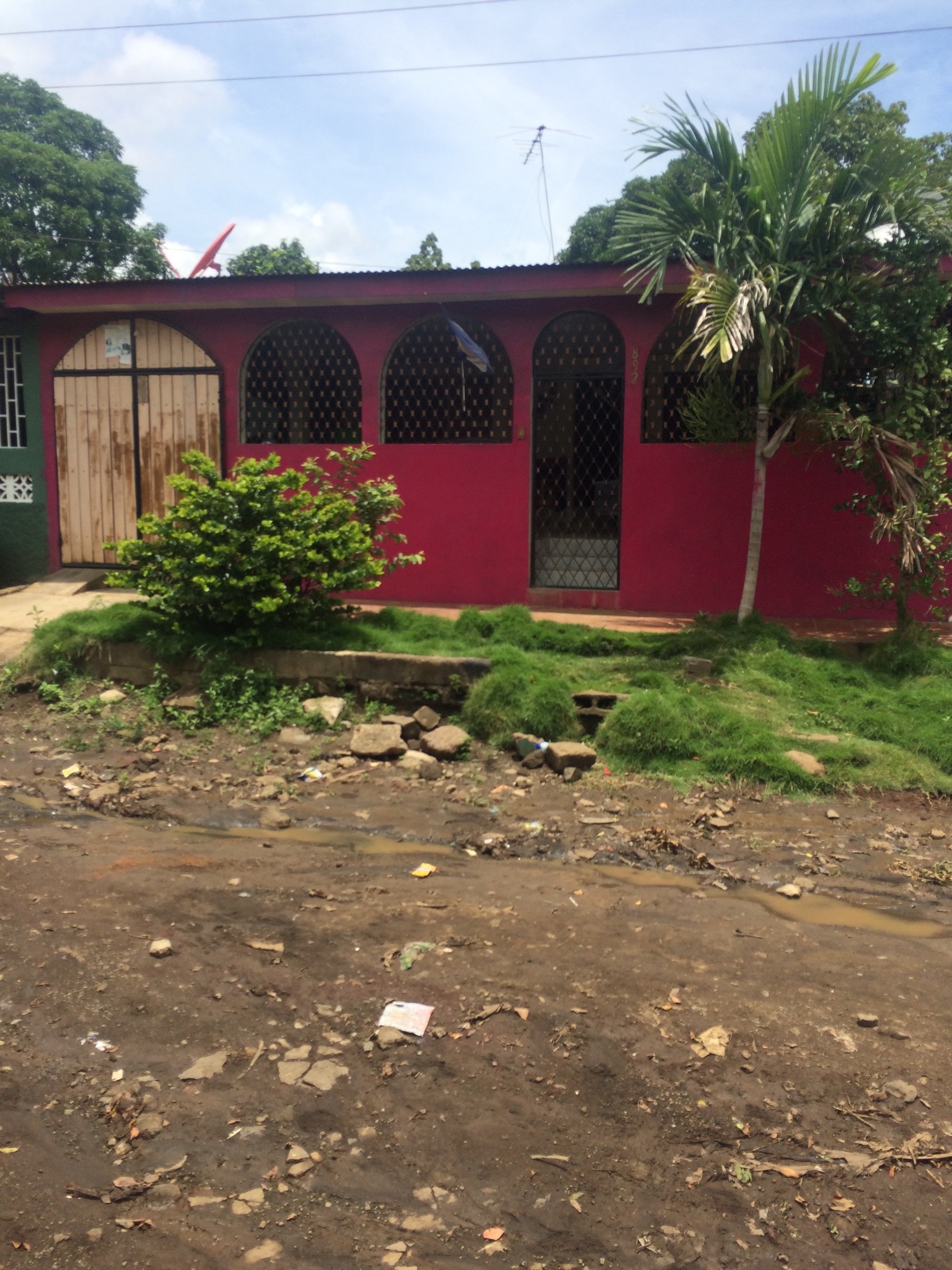
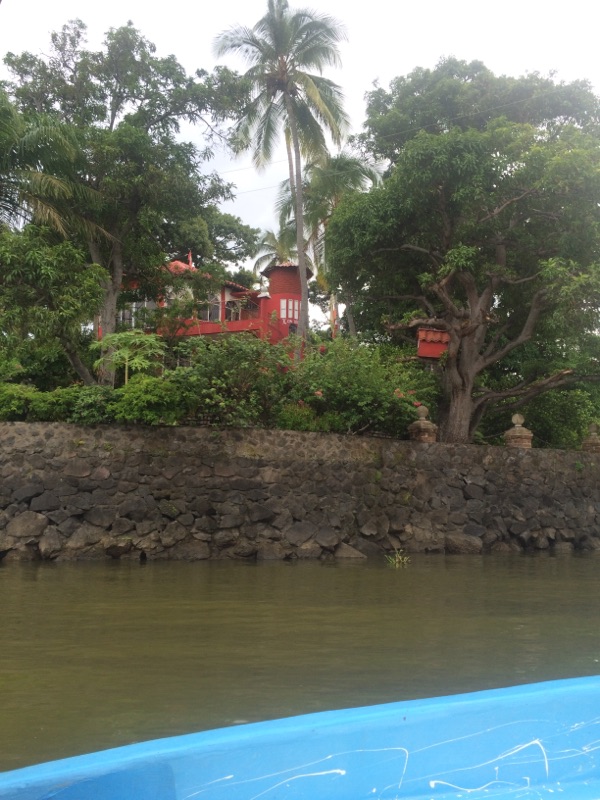
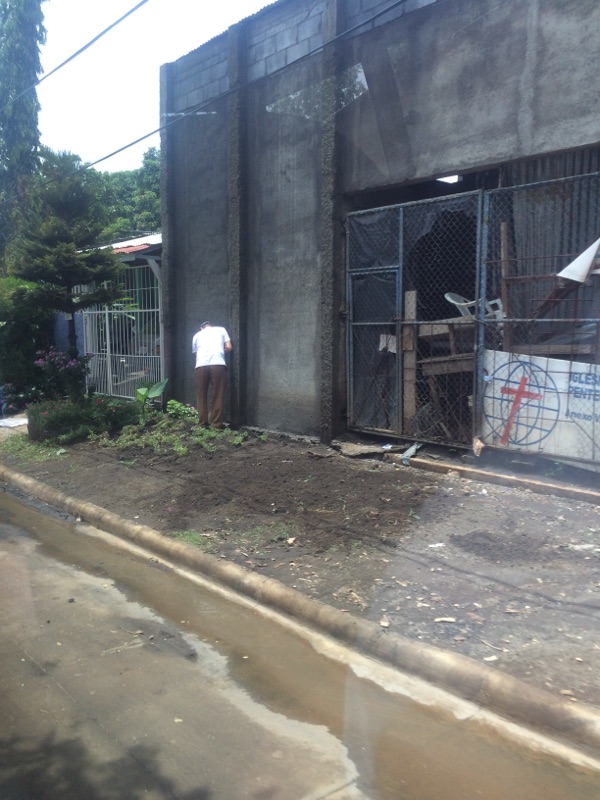
The city of Managua is covered with small, one-story cement block homes. Many of the homes have dirt or tile floors and iron bars over their windows and doors. At first glance the homes seemed so small, cramped and confining, but my perspective later changed after taking a deeper look into some of the homes and getting to know some of the people who lived there. The homes along the main road from Managua to Granada were similar in size, some of them made of wood and other scrap materials rather than cement. There was also a considerable amount of trash and garbage all over the place, not just in the city but all along the main roads as well. When we first arrived in Granada, we took a boat tour of Lago Nicaragua. On the lake I was surprised to see small islands occupied by beautiful, extravagant homes that resembled small fortresses. Our tour guide informed us that the homes on the lake were owned by the wealthiest families in Nicaragua. Each home occupied its own small island, accessible only by boat. This was an eye-opening moment for me where the disparity between the rich and the poor was blatant. After our boat tour we toured the tourist city of Granada whose streets and architecture told the story of its Spanish origins back in the 16th century. The city center was quite beautiful, filled with colorful buildings and vendors selling artisanal crafts.
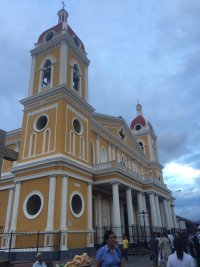 Throughout the remainder of our stay in Nicaragua we spent most of our time in the city of Managua. Overall, the determinants of health that stood out the most to me were access to health care, health education, economic environment and physical environment. Health care is free in Nicaragua, but the community health clinics are overrun with patients, and citizens don’t have access to the necessary services. For example, those who live in rural areas of Nicaragua may have to travel all the way into the city of Managua to receive the care, and traveling takes time and money. I also learned from our families in the neighborhood of Annexo La Libertad that doctor visits leave them with a list of prescriptions and little or no information as to what the medication is for. On top of that, oftentimes medications are expensive, and families cannot afford to buy them. The families that we worked with lacked basic health knowledge, such as the importance of sanitation and nutrition, but they were eager to learn. One of the biggest environmental problems I noticed was access to clean water. Not all homes have running water, and the sanitation level of public water sources was unclear. It’s also very difficult to find work in Nicaragua without an education, especially for those who live in more rural areas. There are a high percentage of young men in the country who are unemployed, but not necessarily for lack of trying to find a job.
Throughout the remainder of our stay in Nicaragua we spent most of our time in the city of Managua. Overall, the determinants of health that stood out the most to me were access to health care, health education, economic environment and physical environment. Health care is free in Nicaragua, but the community health clinics are overrun with patients, and citizens don’t have access to the necessary services. For example, those who live in rural areas of Nicaragua may have to travel all the way into the city of Managua to receive the care, and traveling takes time and money. I also learned from our families in the neighborhood of Annexo La Libertad that doctor visits leave them with a list of prescriptions and little or no information as to what the medication is for. On top of that, oftentimes medications are expensive, and families cannot afford to buy them. The families that we worked with lacked basic health knowledge, such as the importance of sanitation and nutrition, but they were eager to learn. One of the biggest environmental problems I noticed was access to clean water. Not all homes have running water, and the sanitation level of public water sources was unclear. It’s also very difficult to find work in Nicaragua without an education, especially for those who live in more rural areas. There are a high percentage of young men in the country who are unemployed, but not necessarily for lack of trying to find a job.
One of the things that really struck me about the people of Nicaragua was their sense of pride and community support. No matter how poor a family was, they made sure their kids were sent to school with fresh clean clothes. Nurses in Nicaragua are very proud of their place in society, though they are not paid very well. Many nurses often have to pick up a second job, yet they’re very passionate about what they do, and they take great pride in their role in the community. UPOLI’s motto is “serviendo la communidad,” which is translated to “serving the community.” That’s the motto of the entire school, not just the nursing program.
- Alanna Field, ABSN Student